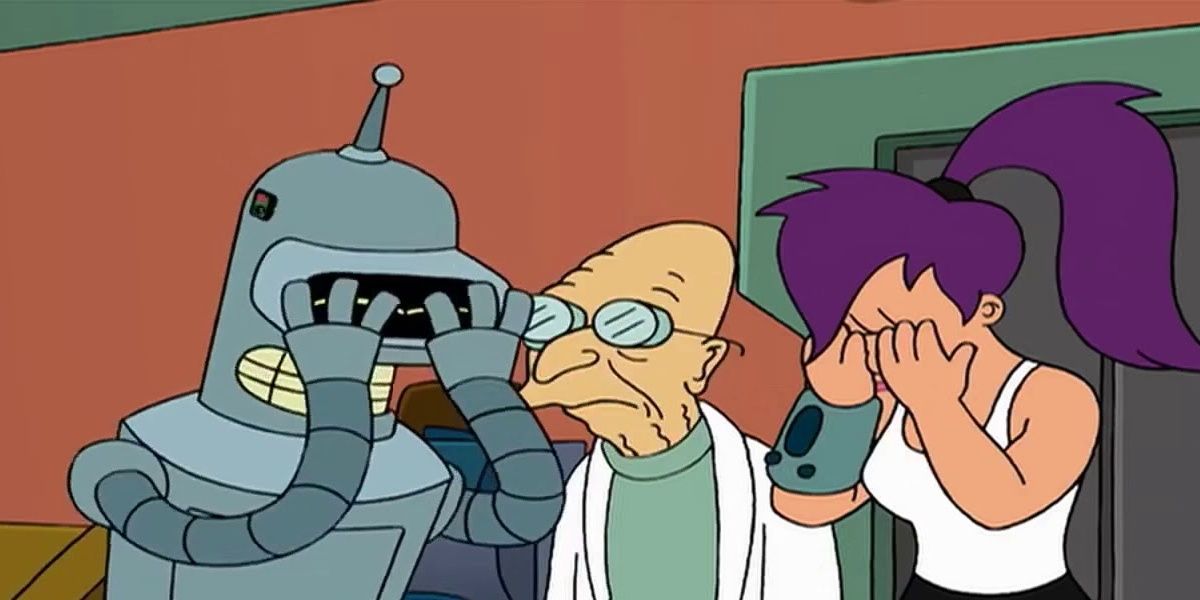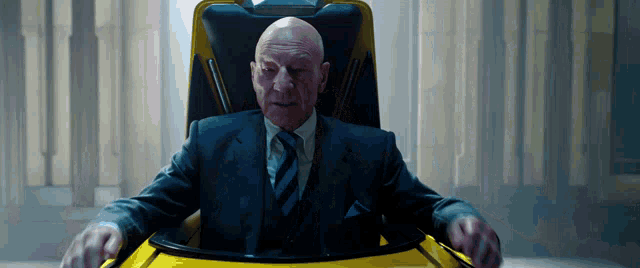In this week’s module, the movie Arrival, and Star Trek episode “Darmok” demonstrated different aspects of cognitive linguistics through the characters and their interactions with other life forms. In the Star Trek episode, there is a scene where Captain Picard and the Tamarian Captain spend a night on the planet at a healthy distance from one another (11:29). We have seen previously that Picard is not able to understand the language of the Tamarian when they first meet during the day, creating a barrier between them. It seems that a common theme throughout the episode was fear, and how fear due to lack of understanding can lead to violence. Picard watches the Tamarian build a fire and place objects of some sort arround the fire before turning over to go to sleep. Picard stays awake freezing, because he does not trust this foreign being, and the absence of trust stems from the fact that he can’t put words or meaning behind the action of the Tamarian. He doesn’t know if the Tamarian is going to be peaceful, or if he will try to harm him in the night when he finally goes to sleep. The Tamarian can sense that Picard is cold and untrusting, so he offers him a torch of fire to keep warm in the night saying “Temba with arms wide”.
Picard is still unable to understand exactly what that phrase means, but with more context, in this instant the Tamarian is performing a physical act to demonstrate his actions, which allows Picard to realize that he means no harm. I think we can see how important body language is here and how it is effective in connecting the bridge between Picard and the Tamarian when the spoken language is not possible right away (this will allow actions to be connected to words, which will help when trying to understand a language). Also, Picard can use past experience to help him come to conclusions about the Tamarian’s stance towards him and whether it is good or bad. In war, if someone is offering you help instead of attacking you, that is a sign that they probably don’t want to be your enemy. Social queues within culture gain meaning, and can be used to make future decisions.

Throughout the episode, the Tamarian holds up the two knife like weapon in the air towards Captain Picard, at one point he even throws one at the Captain. Picard sees these particular actions as “aggressive” movements and throws the weapon back at the Tamarian saying “I don’t want to fight you”. Picard fears for what may happen if they begin to engage in battle, possibly starting a war between the two species. In this scenario Picard is using a cognitive frame that is geared for foreign conflict. As I mentioned earlier, he is using past experience to make decisions, but each scenario is unique and the full story had not been revealed yet due to the language barrier. The next day they are on the planet together, they both hear a noise of an animal of some sort that is closing in on them (22:03). Picard sees how the Tamarian goes on the offensive towards where the noise is coming from and realizes the creature is upon them. Frame shifting occurs here, because new information has now been provided to Captain Picard, which changes the context of his situation. Picard deducts that the enemy is actually this creature, and that the reason the Tamarian kept trying to give him the knife was so that they could fight it together. Also, when the Tamarian kept raising the weapons in the air the day before he was trying to rally Picard to join his fight. The introduction of the creature is what Picard needed to piece together why the Tamarian wanted to meet with him in the first place.

In the film Arrival, we see similar themes of cognitive dissonance between the humans at the Heptapods. Here, their conceptual/linguistic system is not through metaphors of spoken language, but symbol writing. The different designs within the circles that the Heptapods create represent different objects or ideas, that the human may have written words for. Louise is able to piece together their language by the mirrored action of the Heptapods.

She sees that they use symbols so she decides to adopt their method of written communication and uses a white board. Louise and Ian introduce themselves at the wall and take off their gear so the aliens can see them. Louise points to the aliens and says “you, who are you?” and they give their names with the circle symbols (47:45). Throughout the film she continues this visual type of communication, as we see later on she ha the phrase “Ian walking” on the white board, while having Ian walk in front of them. They respond with their own symbol showing how they are internalizing what they are seeing. Again we see the physical body playing an important role in communication, as Ian is being used to demonstrate an action, not to mention the Heptapods use their physical body to create the symbols on the wall.

Another scene I found to be interesting was when the Heptapod write a symbol that says “offer weapon”(1:06:58), or what the human interpret it to mean. The problem here is that as discussed in the lecture, “meaning is not static, but dynamically changing…it is embedded in social interactions, physical environments, and bodily experiences”. Louise even points out that “they are using a word they don’t fully understand. We don’t know if they know the difference between a weapon and a tool, our language like our culture is messy and sometimes one can be both”. A word can be misconstrued if there isn’t a clear definition, or if there are a couple of different ways to express the same thing. Also, the humans have no previous knowledge of what life and culture is like for the Heptapods, which may leave them with gaps in understanding how the Heptapods are processing information.








 Unlike both Star Trek and Futurama,
Unlike both Star Trek and Futurama,  The first thing that I noticed is that he felt not only her sadness, but also her happiness and anger, which I thought was odd, but only because empathy is usually associated with kindness. Continuing, this is reminiscent of the topic of mirror neurons because Bender is able to save Leela’s pet since he seemingly feels her pain. But, it also showcases the weakness of the mirror neuron claim because, after the chip is removed, Bender doesn’t feel empathy anymore despite witnessing and displaying Leela’s love for Nibbler. This might be because he didn’t employ emotional empathy. He acted out of selfishness (how he would feel in her place) instead of thinking about how Leela herself felt. This leans more towards supporting embodied theory since he does not need to theorize Leela’s emotions. His body recognizes her body language and responds to it.
The first thing that I noticed is that he felt not only her sadness, but also her happiness and anger, which I thought was odd, but only because empathy is usually associated with kindness. Continuing, this is reminiscent of the topic of mirror neurons because Bender is able to save Leela’s pet since he seemingly feels her pain. But, it also showcases the weakness of the mirror neuron claim because, after the chip is removed, Bender doesn’t feel empathy anymore despite witnessing and displaying Leela’s love for Nibbler. This might be because he didn’t employ emotional empathy. He acted out of selfishness (how he would feel in her place) instead of thinking about how Leela herself felt. This leans more towards supporting embodied theory since he does not need to theorize Leela’s emotions. His body recognizes her body language and responds to it. I also wanted to zone in on her embodied cognition and how difficult it is to separate the actions performed by the host’s body from her own consciousness. Due to the fact that she couldn’t commit suicide, it seems that the host’s body and her mind are now one. Or, if not, there’s a struggle between the mind and body for control. Vos’s experience isn’t too different from what most people experience as she uses grounding techniques such as repeating the phrase, “I’m absolutely starving”. People normally use this when they’ve lost their sense of self.
I also wanted to zone in on her embodied cognition and how difficult it is to separate the actions performed by the host’s body from her own consciousness. Due to the fact that she couldn’t commit suicide, it seems that the host’s body and her mind are now one. Or, if not, there’s a struggle between the mind and body for control. Vos’s experience isn’t too different from what most people experience as she uses grounding techniques such as repeating the phrase, “I’m absolutely starving”. People normally use this when they’ve lost their sense of self.






 laughing and smiling — as she turns the knob on the device the cord is connected to, her face turns to a sudden frown followed by a sob. This is juxtaposed to Bender “copying” Leela’s emotions as they both become angry at each other and then cry afterwards. I feel as if these scenes are an example of “Simulation Theory”. As the voice thread states: “Understanding others involves simulating their mental states based on your own experiences.”
laughing and smiling — as she turns the knob on the device the cord is connected to, her face turns to a sudden frown followed by a sob. This is juxtaposed to Bender “copying” Leela’s emotions as they both become angry at each other and then cry afterwards. I feel as if these scenes are an example of “Simulation Theory”. As the voice thread states: “Understanding others involves simulating their mental states based on your own experiences.”

